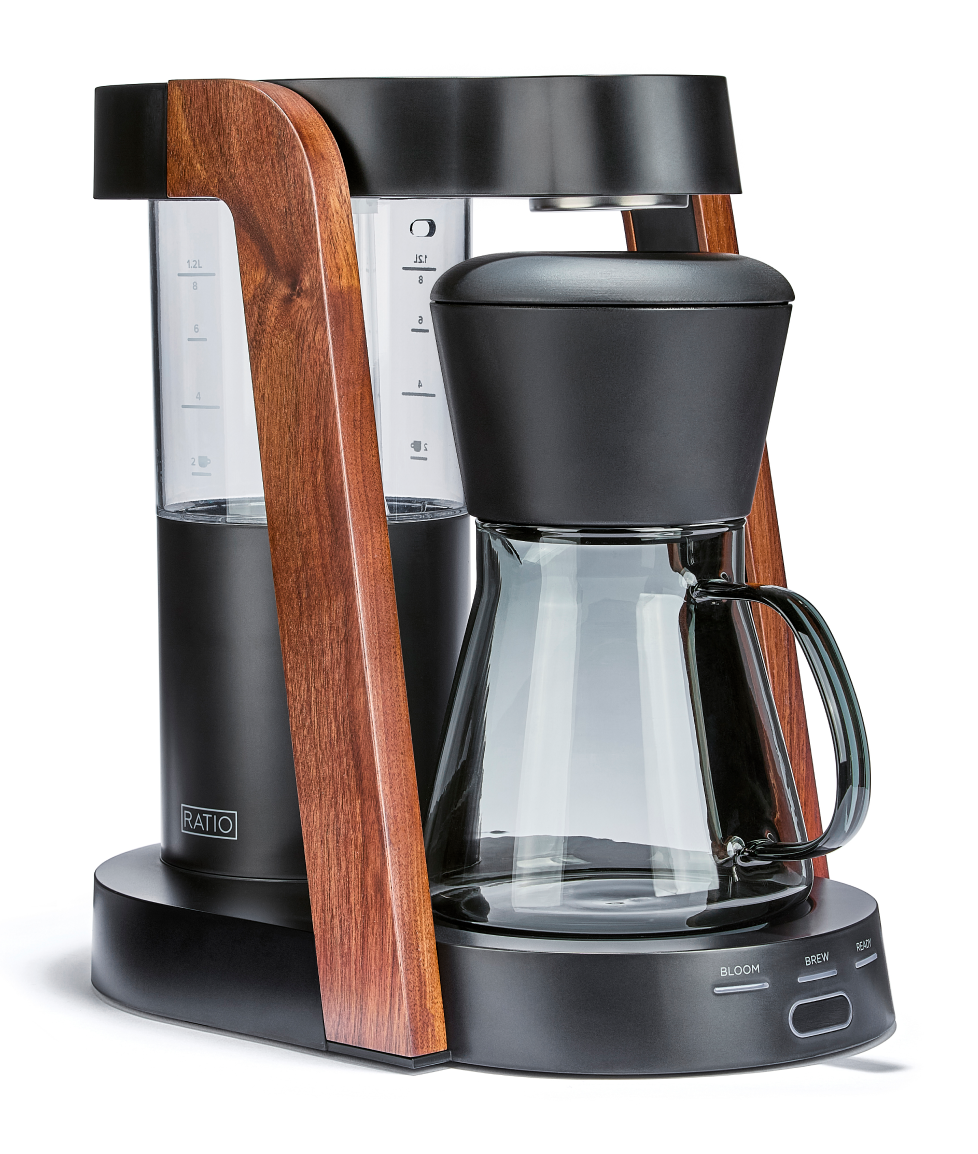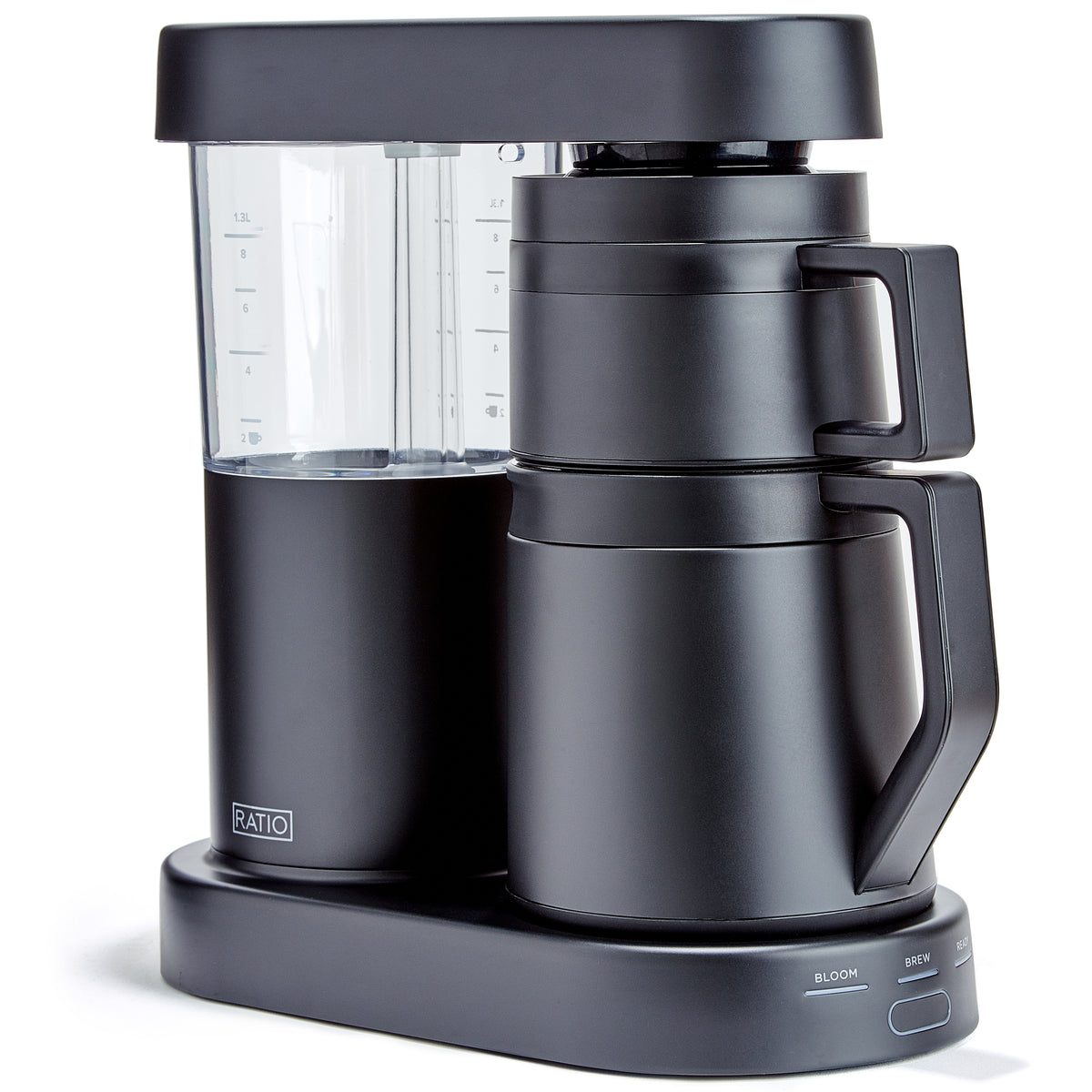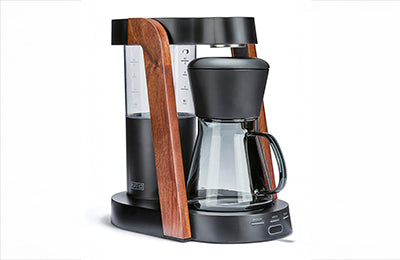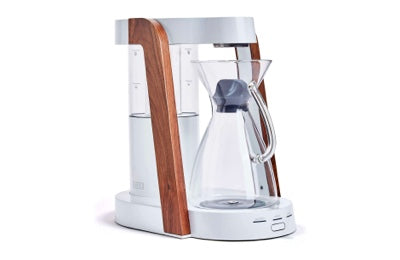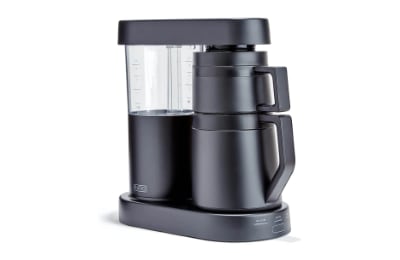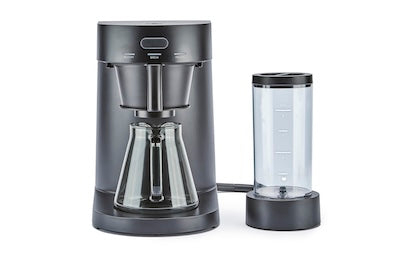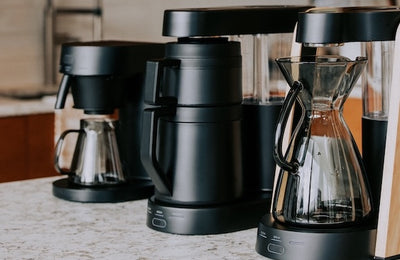What Coffee Lovers Can Learn from Wine Sommeliers
Key Takeaways
- Coffee lovers can enhance their tasting experience by adopting techniques from wine sommeliers.
- Understanding terroir helps reveal how regional characteristics influence coffee and wine flavors.
- Pairing coffee with food can create balanced and complementary dining experiences.
- Experimenting with brewing techniques enhances appreciation for the craftsmanship involved.
- Discovering new perspectives from wine experts can lead to a deeper enjoyment of coffee.
Exploring the world of coffee through the lens of wine sommeliers opens up a palette of possibilities that might intrigue you as a coffee lover. Just as these seasoned wine experts navigate the complexities of flavors, aromas, and textures, you can elevate your coffee tasting experience by adopting similar techniques. Delve into the ceremony of coffee tasting, embracing the subtle notes that differentiate coffee types. Allow the principles of region-specific characteristics and aging, often appreciated by wine sommeliers, to guide your understanding of coffee's rich tapestry. An awareness of origins, much like grapes, enriches your appreciation for the diverse spectrum coffee offers.
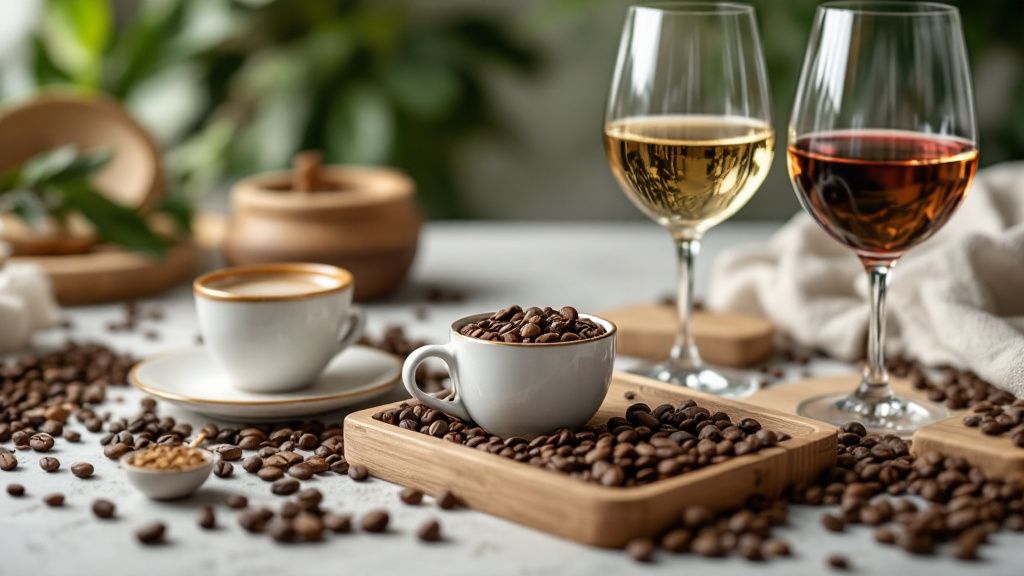
The Art of Tasting and Savoring
To truly appreciate coffee's complexities, you need to embrace the art of tasting and savoring. Just as wine sommeliers approach a glass of wine with anticipation and careful analysis, you too should engage all your senses when enjoying a cup of coffee. Notice the aroma first, as this olfactory experience contributes significantly to the flavor profile perceived by your taste buds. The journey from scent to savor is one to relish.
Focus on the subtleties that different coffee types present, much like a wine expert discerns between varietals. Brew temperatures, grind sizes, and extraction times can alter your coffee experience, offering layers of nuance reminiscent of regional wine characteristics. Paying attention to these elements can enhance your ability to distinguish and appreciate the unique attributes each coffee type possesses.
Shifting your mindset from simply drinking coffee as a mere caffeine fix to savoring it as an artisanal craft lets you discover deeper pleasures. This new perspective enables you to celebrate the intricacies and craftsmanship involved in bringing your favorite beverage to life. Observing how wine sommeliers engage with their selections can inspire ways to enjoy and evaluate coffee beyond its energizing properties.
The art of tasting and savoring encourages a mindful exploration, inviting you to tune into each sip’s complexities. Allow yourself to linger over the flavors that unfold, taking notes from the calm, deliberate practices of wine experts. This intentional pause can transform your coffee routine into a cherished ritual.
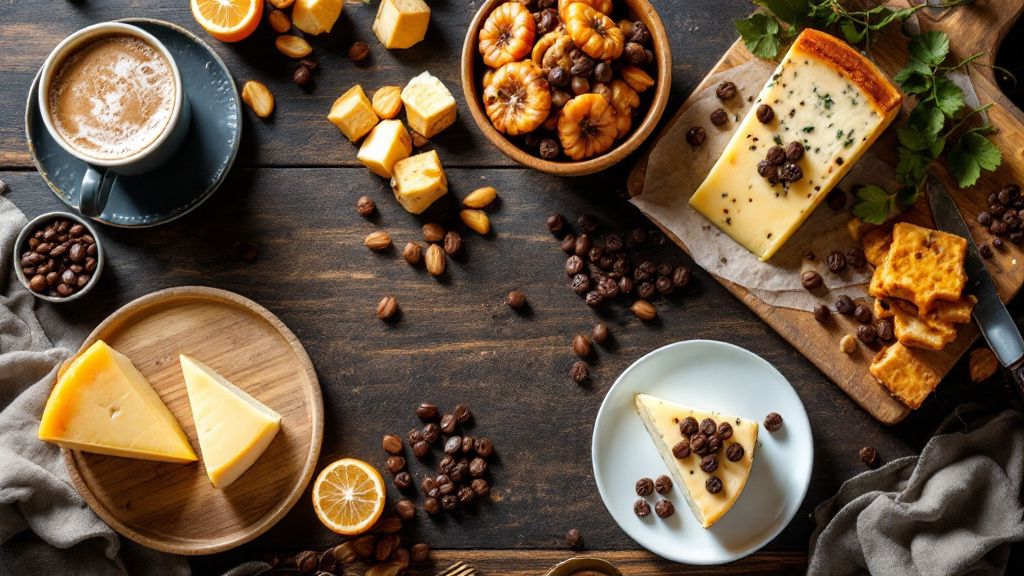
Pairing Coffee with Food
Embracing the concept of pairing coffee with food brings a nuanced dimension to your dining experience. Much like how a wine expert selects the ideal wine to complement a meal, you can explore how different coffee types enhance various flavors. Identifying complementary tastes allows you to create harmonious pairings that highlight the unique characteristics of both the beverage and the dish.
Looking at pairing coffee with food through the lens of a wine sommelier's expertise reveals that balance and contrast play pivotal roles. For instance, a rich, chocolate-laden dessert beautifully aligns with dark roast coffee, counterbalancing the sweetness with its robust intensity. Alternatively, light and fruity coffee can enhance the subtleties of a delicate pastry, showcasing the intricate interplay of flavors.
Consider the regional origins and tasting notes of coffees as you decide on pairings, similar to how wine sommeliers approach different varietals and terroirs. A coffee with bright acidity might pair well with citrus-infused dishes, bringing out vibrant notes on both sides. Exploring these connections adds depth to your appreciation, turning any meal into a culinary adventure.
This approach not only elevates your dining experience but also invites you into a world of discovery, inviting creativity and experimentation. Just as sommeliers guide wine enthusiasts, you can embark on your own journey through the rich and varied landscapes that coffee and food together create.
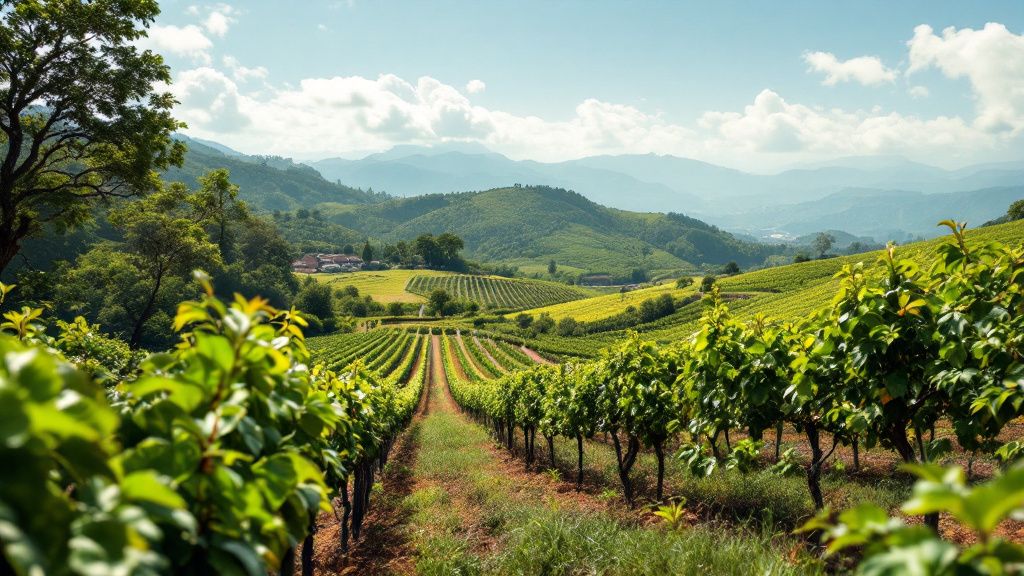
The Role of Terroir in Coffee and Wine
Understanding the role of terroir in both coffee and wine can profoundly deepen your appreciation of these beverages. Terroir refers to the environmental factors that influence the characteristics of crops, encompassing soil, climate, and altitude, along with human cultivation techniques. Just as wine sommeliers identify terroir's impact on grapes, you can explore its effect on coffee, recognizing how these elements shape flavor profiles.
Each coffee region offers distinctive characteristics influenced by its unique terroir. In coffee cultivation, regions like Ethiopia are celebrated for their floral notes and bright acidity, a product of the high altitudes and rich, volcanic soil. For wine, terroir also plays a pivotal role, with regions like Bordeaux renowned for producing wines with distinct flavors shaped by the region's particular climate and soil composition.
For example, just as Napa Valley's Mediterranean climate contributes to its robust Cabernet Sauvignons, the high-altitude, fertile regions of Colombia produce coffee with rich acidity and notes of citrus and chocolate. This concrete understanding of terroir helps you connect origin to flavor, extending your appreciation for the intricate nuances present in each sip of coffee or wine.
Terroir encourages you to think beyond the beverage in your cup, delving into the landscape and practices that produce it. Learning about terroir allows both coffee lovers and wine enthusiasts to explore varieties with a greater sense of context and curiosity. Like a wine expert, you can begin to detect terroir's influence, adding a rich layer to your tasting experience.
By considering terroir, you engage in a dynamic conversation between the earth and your palate. This exploration reveals the layered stories behind coffee types, prompting you to savor more than just the taste, but also the journey and craftsmanship that nature and humans collaboratively offer.
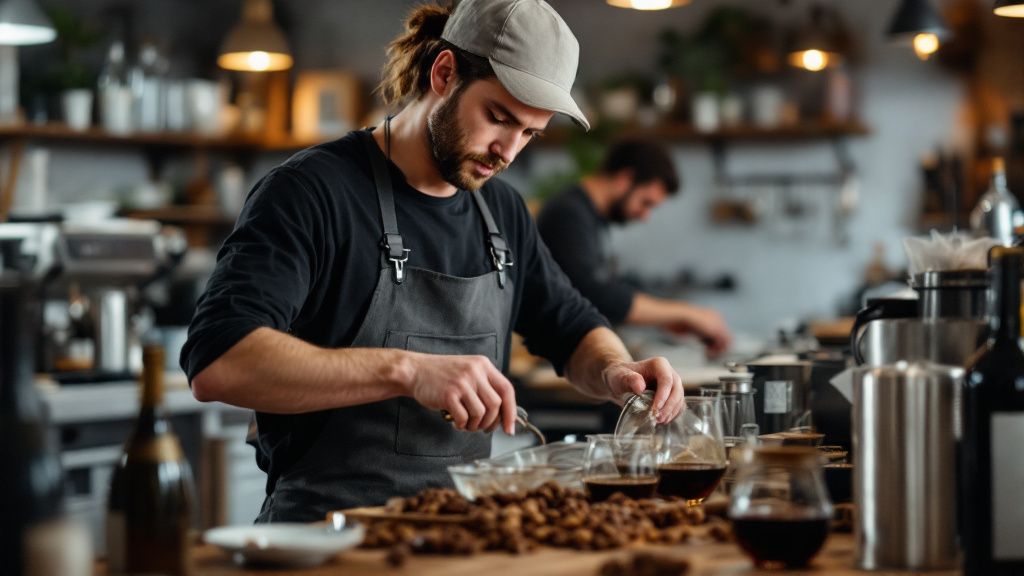
The Craftsmanship Behind Brewing and Winemaking
The craftsmanship behind brewing and winemaking reflects an intricate blend of artistry and science. Whether it’s meticulously roasting coffee beans or aging wine in oak barrels, both processes demand a keen attention to detail and a dedication to quality. As a coffee enthusiast, you can appreciate the skill required to transform raw ingredients into a delightful beverage that showcases their inherent flavors.
The art of crafting coffee, akin to the work of a wine expert, lies in the precise manipulation of variables—such as water temperature, brew time, and bean grind size—to extract optimum flavors. These controlled processes mirror the careful blending and fermentation stages in winemaking, where timing and environment synergize to create exceptional products. Recognizing these parallels enriches your comprehension of both crafts.
To enhance your brewing experience, strive to experiment with different variables, much like adjusting winemaking techniques. This practical tip opens up a myriad of possibilities for tailoring each cup to your personal taste preferences. Experimentation not only heightens your appreciation for the craftsmanship involved but also empowers you to refine your sensory palate.
Engaging in the craftsmanship of both brewing and winemaking invites you to embrace the creativity and precision that define these traditions. The knowledge shared by wine sommeliers offers valuable insights into the detailing and patience that elevate each sip of coffee to an art form, encouraging you to continue exploring this flavorful journey.
Frequently Asked Questions
How can wine sommeliers' techniques enhance my coffee experience?
Adopting a sommelier's approach can help you explore coffee's complex flavors and aromas more deeply.
What does terroir mean for coffee?
Terroir refers to the environmental factors, like soil and climate, that influence coffee's flavor profiles.
Can I pair coffee with food like wine?
Yes, pairing coffee with complementary foods can enhance both the coffee and the meal's flavors.
Is brewing coffee similar to winemaking?
Both involve precise techniques and variables that affect the final flavor, requiring attention to detail and craftsmanship.
How do I start experimenting with coffee brewing?
Try varying factors like water temperature, grind size, and brew time to discover your preferred coffee profile.
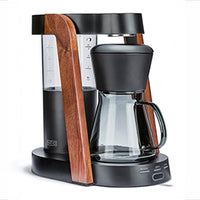 Ratio Eight S2
Ratio Eight S2
 Ratio Eight Original
Ratio Eight Original
 Ratio Six
Ratio Six
 Ratio Four
Ratio Four
 Compare Machines
Compare Machines
